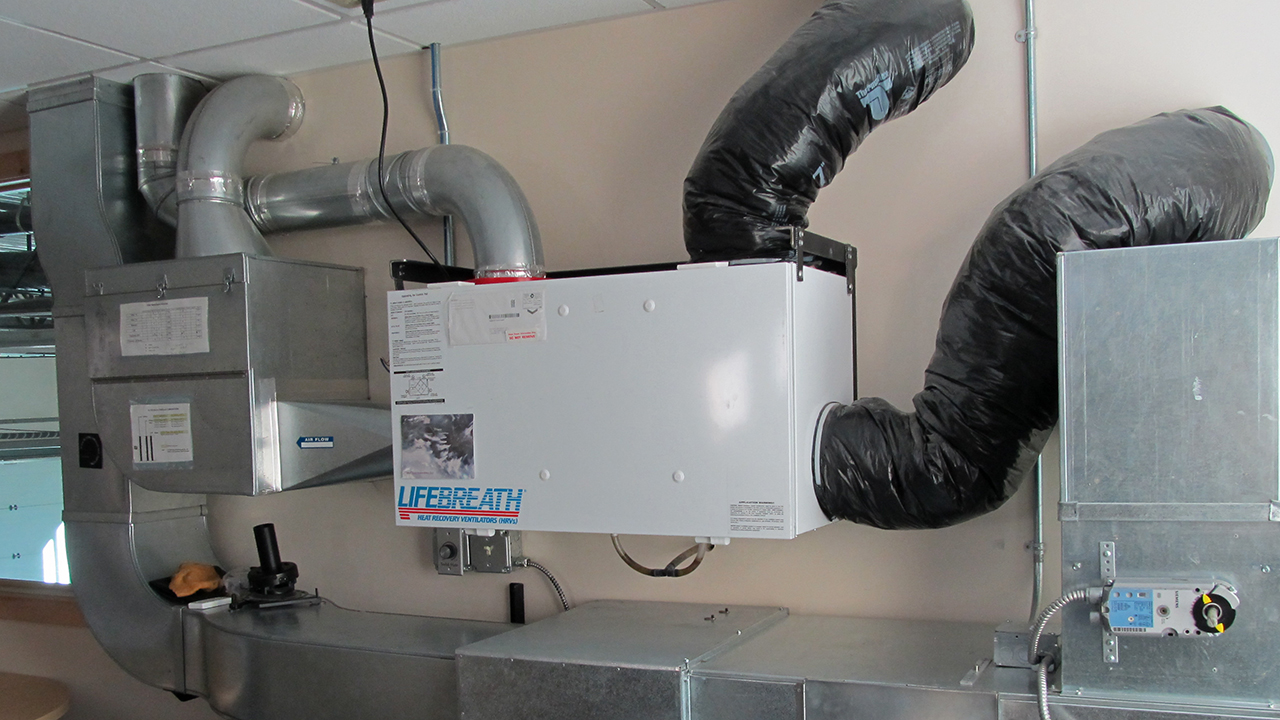The Eco-Friendly Benefits of HRV in Modern Homes
Wiki Article
Exploring the Advantages of Heat Recovery Ventilation for Power Performance in Homes
Heat Recovery Ventilation (HRV) systems supply house owners a practical technique to boosting power efficiency. By redeeming heat from outbound air, these systems can significantly decrease heating & cooling expenses. In addition, they provide a steady supply of fresh air, enhancing interior air high quality and convenience levels. As property owners consider lasting choices, understanding the subtleties of HRV systems comes to be increasingly crucial. What elements should one evaluate before making such an investment?Understanding Heat Recovery Ventilation Systems

Exactly How HRV Boosts Indoor Air Quality

Power Savings: The Economic Benefits of HRV
Making best use of power performance, heat recovery ventilation (HRV) systems provide considerable monetary benefits for homeowners. By recuperating and reusing warmth from exhaust air, HRVs significantly reduce cooling and heating expenses. This modern technology can lead to power cost savings of approximately 30%, depending on climate and usage patterns. Property owners frequently notice decreased utility expenses soon after setup, making HRVs a financially smart investment in time. In addition, many regions give incentives or refunds for energy-efficient upgrades, additionally improving the financial appeal. As energy costs continue to rise, the cost-effectiveness of HRVs comes Read More Here to be increasingly clear. On the whole, the incorporation of HRV systems not just promotes power performance however likewise adds to long-lasting financial savings for houses.The Environmental Impact of Heat Recovery Ventilation
A substantial ecological benefit of heat recovery ventilation (HRV) systems lies in their capacity to decrease general energy usage. By reclaiming heat from exhaust air and moving it to inbound fresh air, HRV systems lessen the demand for energy-intensive heating and cooling down techniques. This reduction in energy demand adds to lower greenhouse gas emissions, as much less nonrenewable fuel source is required to keep comfortable interior temperatures. In addition, HRV systems enhance indoor air quality by successfully trading stagnant air with fresh outdoor air, minimizing dependence on mechanical air conditioning systems that can hurt the setting. Overall, the implementation of HRV systems supports sustainable living methods and aligns with global efforts to fight environment modification by promoting power performance in household setups.
Picking the Right HRV System for Your Home
Exactly how can property owners guarantee they select the right heat recovery ventilation (HRV) system for their needs? First, they need to assess their home's dimension and layout, as these factors influence air movement requirements. Next, reviewing the system's efficiency scores is crucial, as higher rankings suggest better efficiency and energy cost savings. Homeowners ought to additionally take into consideration installation and upkeep expenses, comparing different brands and versions for worth. Additionally, it's vital to review sound degrees, as some systems operate even more quietly than others. Consulting with a/c experts can provide tailored referrals based on details home problems. Examining individual reviews and service warranties can help in making a notified choice, ensuring that the picked HRV system efficiently boosts indoor air high quality and energy performance.Often Asked Questions

Exactly how Commonly Should I Tidy or Maintain My HRV System?
The regularity of cleansing or maintaining a heat Homepage healing ventilation (HRV) system normally depends on use and ecological variables. Normally, it is advisable to carry out upkeep every six months to ensure peak efficiency and air quality.
Can HRV Systems Assist Decrease Humidity Degrees Indoors?
HRV systems can efficiently minimize indoor moisture levels by exchanging stale, humid air with fresh, drier air from outdoors. HRV Heat Recovery Ventilation. This process aids maintain a well balanced indoor setting, improving comfort and protecting against moisture-related problems
What Is the Life expectancy of a Typical HRV System?
The life expectancy of a common heat recovery ventilation (HRV) system differs, normally lasting between 10 to 15 years. Routine upkeep can expand its effectiveness and operational life, making sure peak performance throughout its usage duration.Are There Any Kind Of Sound Worry About HRV Equipments?
Sound interest in HRV systems can develop, specifically from follower operation. Several modern-day devices are developed to decrease sound levels, ensuring they operate silently while keeping performance, which deals with prospective disruptions in living environments.Can I Set Up an HRV System Myself, or Do I Need a Specialist?
The individual contemplated whether to additional hints install the heat recovery ventilation (HRV) system personally or hire a professional. Normally, while do it yourself setup is feasible, expertise assurances proper functionality and conformity with neighborhood building codes, enhancing system performance.Report this wiki page